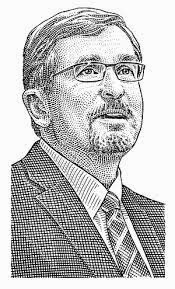Dr. Steven J. Lawson gives examples of fulfilled prophecy as evidence of the divine inspiration of Scripture. (Full message here)
Transcript
The fulfilled prophecies of the Bible. We could just believe that the Bible is the Word of God on this one point alone. This is staggering. Say, do you realize that at the time the Bible was written 27% of the Bible was prophetic?
There are some 1,817 prophecies of some nature in the Bible at the time the author wrote the Scripture. A prophecy is pre-written history. Only God knows the future and the reason that God knows the future is because God has foreordained the future. God’s not looking down the tunnel of time to see anything because God already knows everything. And God has already foreordained everything. And He records some of it for us in the Scripture.
And we read all kinds of prophecies regarding individuals—that Abraham would have a son. Did he? In his latter years. That there would be rulers like Cyrus of Persia. 100 years before Cyrus assumed the throne, his name in Isaiah 45 verse 1 is recorded. Would you like to predict who the President of the United States will be 100 years from today? It’s impossible. But here is the Bible giving name and country of these rulers long before they’re even birthed and come onto the scene. Or nations, such as the fall the Northern Kingdom or the length of Judah’s captivity or empires regarding the fall of Babylon or cities such as the destruction Tyre et cetera, et cetera, et cetera.
There is a mounting case of evidence that substantiates the perfect truthfulness of the Word of God. There are no other books in the world that are doing this. How about the prophecies concerning the Lord Jesus Christ? The greatest fulfillments of prophecy are found at the first coming of Christ, not even the second coming but at the first coming. It was prophesied in the Old Testament that Jesus would be born of the seed of Abraham, Jesse, and David.
He would be born of a virgin, called Emmanuel, born in Bethlehem. Great persons would come to adore Him, there would be the killing of children in Bethlehem. He would be called out of Egypt. He would be preceded by a forerunner. He would be anointed with the Holy Spirit. He’d be a prophet like Moses, a priest after the order is now Melchizedek. He would be entering into His public ministry in Galilee. He would be entering publicly into Jerusalem and come into the temple. He would live in poverty and meekness, tenderness, and compassion. He would be without the deceit, He’d be full of zeal, preaching with parables, working miracles, bearing reproach. He would be rejected by His own Jewish brethren. The Jews and Gentiles would combined together against Him. He would be betrayed by a friend. His disciples would forsake Him. He would be sold for thirty pieces of silver. At that price would be given for a potter’s field.
He would die with intense suffering yet be silent under that suffering. He would be struck on the cheek, His visage would be marred. He would be spit upon and scarred. His hands and His feet would be nailed to the cross. He would be forsaken by God, He would cry out, “My God My God, why have You forsaken Me?” He would be mocked. Gal and vinegar would be offered to Him. His garments would be parted. Lots would be cast for His clothing. He would be numbered among the transgressors. He would intercede for His murderers. He would die but not a bone of His body would be broken. He would be pierced long before crucifixion would even ever be invented. He would be buried with the rich. His flesh would not see corruption. He would be raised from the dead. He would ascend back to the right hand of God the Father.
All of this recorded hundreds of years before Jesus ever entered this world. And many of these prophecies are fulfilled not by His friends but by His enemies who stand to lose the most with their fulfillment. And many of these prophecies being fulfilled before He was born, while He’s in His mother’s womb, and while He is in the grave.

